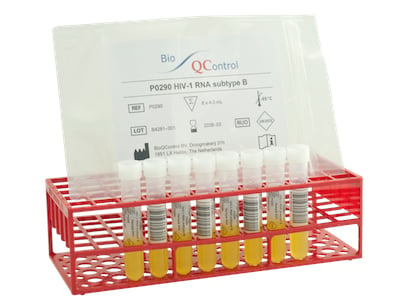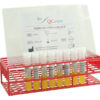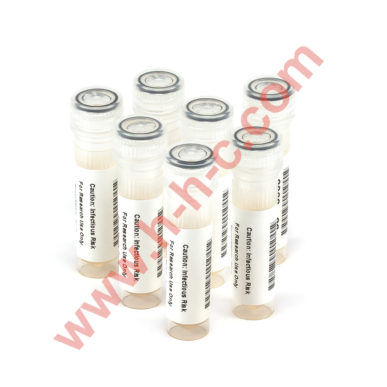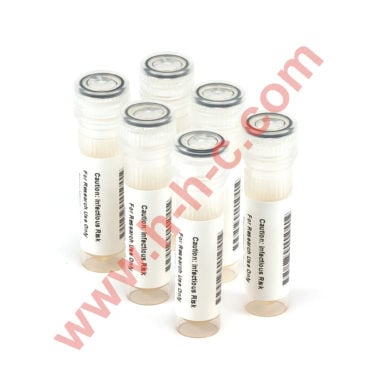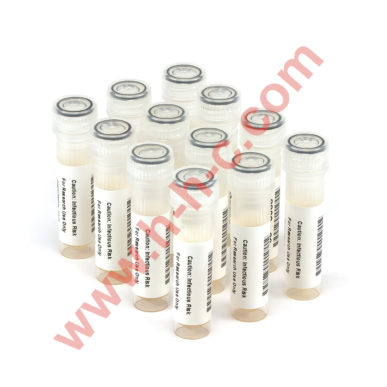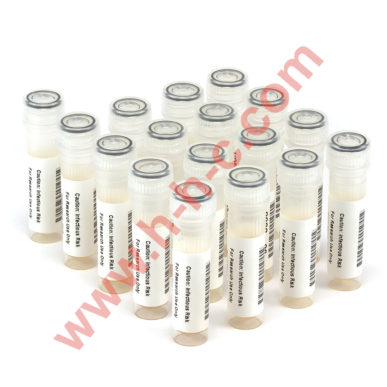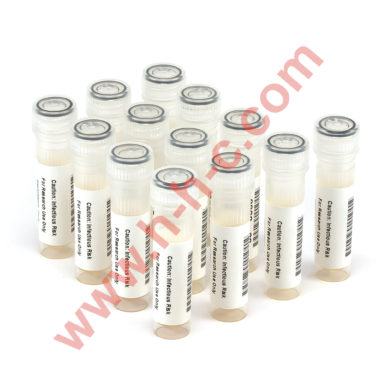HIV-1 RNA subtype C (10x 4 ml)
The prices will be displayed on the checkout.
In the mid1990s we established tissue culture HIV-1 RNA standards of different subtypes, which have been used in the international VQC proficiency program until 2004. The VQC-Sanquin HIV-1 subtype B standard has been quantified in copies/mL by different methods but the results obtained in the bDNA 3.0 assays were eventually used for value assignment. The liquid frozen VQC-Sanquin standard was calibrated against the 1st and 2nd International Standards in the WHO collaborative study. When we compared the bDNA 3.0 results the conversion factors (95%CI) were 0.39 (0.34-0.44) copies/IU when comparing the VQC-Sanquin standard against the 1st WHO HIV 97/656 standard, but 0.58 (0.51-0.66) copies/IU when calibrated against the 2nd WHO HIV 97/650 standard. These were data from the same WHO collaborative study showing that there has been a significant shift in the amount of HIV per IU when the 1st WHO standard was replaced by the 2nd WHO standard. This can be explained by primer mismatches of at least one of the quantitative NAT methods that contributed to the calibration data.
Currently the 3rd WHO HIV 10/152 replacement standard is in use. It must be emphasized that the IU values assigned to the VQC Sanquin standard in the package insert are based on calibration to the 2nd WHO 97/650 standard. The later WHO standard and the VQC-Sanquin subtype B standard have been tested in hundreds of replicates to determine the 95% and 50% LODs of the Procleix Ultrio versions and more recently the cobas MPX versions.
Over the years HIV-1 standards of different subtypes and circulating recombinant forms (CRFs) have been used for validation of different NAT methods. In addition, HIV-2 and HIV group O standard dilutions were used in evaluation studies. More recently the number of HIV-1 subtypes, CRF, HIV group O and N plasmas has been expanded, but so far with fewer replicate NAT data.
The package insert of all the HIV subtype standard dilution panels gives an overview of the reactivity rates found with multiple replicate tests in different NAT methods. The response data in the package insert can be used as a reference when the panels are tested for determining the 95% and 50% LOD in validation studies. Currently the 10 member dilution panels are phased out and replaced by 8 member panels composed of 300. 100, 30, 10, 3, 1, 0.3 and 0.1 copies/mL samples.
Source/Standard : BQC – Range copies/ml : 0.1 – 2883 – Range IU/ml : 0.2 – 4971 / -65° C.
Product Insert.pdf
Material Safety Data Sheet.pdf

